JWST makes a spectacular debut, AI gets creative, giant bacteria surprise, and the year’s other big advances in science.
Get the latest international news and world events from around the world.
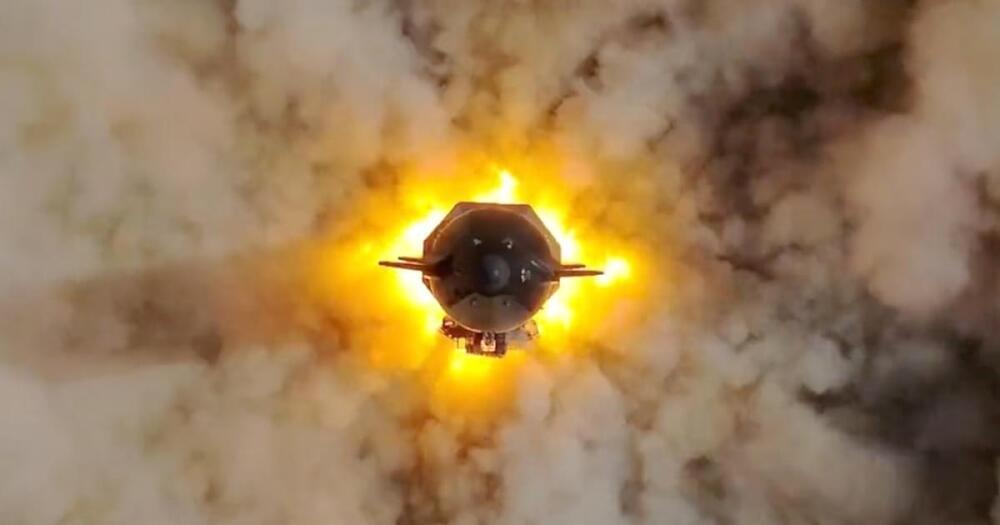
Space imaging company Maxar agrees to $6.4 billion takeover
“Advent has a proven record of strengthening its portfolio companies and a desire to support Maxar in advancing our long-term strategic objectives,” Maxar CEO Daniel Jablonsky said in the statement. “As a private company, we will have enhanced flexibility and additional resources to build on Maxar’s strong foundation, further scale operations and capture the significant opportunities in a rapidly expanding market.”
With some $28 billion invested across the defense, security and cybersecurity sectors in the last three years, Boston-based Advent’s portfolio companies support many satellite and defense platforms which serve the U.S. government and its allies as well as companies across the globe. The firm said it arranged debt and equity financing commitments to finance the acquisition.
The transaction is expected to close mid-2023, subject to customary closing conditions. Maxar, which has 4,400 employees, will operate under the same brand and maintain its headquarters in Westminster, Colorado, and will remain U.S.-controlled and operated.
Scientists’ use of hydrogel materials leads to stem cells developing like human embryos
Materials scientists at UNSW Sydney have shown that human pluripotent stem cells in a lab can initiate a process resembling the gastrulation phase—where cells begin differentiating into new cell types—much earlier than occurs in mother nature.
For an embryo developing in the womb, gastrulation occurs at day 14. But in a dish in a lab at UNSW’s Kensington campus, Scientia Associate Professor Kris Kilian oversaw an experiment where a gastrulation-like event was triggered within two days of culturing human stem cells in a unique biomaterial that, as it turned out, set the conditions to mimic this stage of embryo development.
“Gastrulation is the key step that leads to the human body plan,” says A/Prof. Kilian.

Vitamin D supplements reduce the risk of dynapenia in older people
Vitamin D plays an important role in the regulation of calcium and phosphorus absorption by the organism. It also helps keep the brain and immune system working. Researchers at the Federal University of São Carlos (UFSCar) in Brazil and University College London (UCL) in the United Kingdom have now shown that vitamin D supplementation reduces the risk of dynapenia in older people by 78%.
Dynapenia is an age-associated loss of muscle strength. It can be partially explained by muscle atrophy and is a major risk factor for physical incapacity later in life. People with dynapenia are more likely to fall, need to go to hospital, be prematurely institutionalized, and die.
An article on the study is published in the journal Calcified Tissue International and Musculoskeletal Research. The study was supported by FAPESP.
‘The Price of Immortality’: How long can gene therapy and cellular regeneration extend life?
In his lively tour of longevity science and pseudoscience, Ward, a British reporter, discovers that researchers are largely not as interested in immortality per se as much as in helping us live fulfilling, active lives until our final day. And while some immortalists hope the culmination of this effort will eventually lead us to never finding that day, Ward leaves the question open.
He begins at the Church of Perpetual Life, a congregation of people who, instead of seeking paradise after death, would rather avoid their demise altogether. There, Ward meets Neal VanDeRee, the church’s pastor, who practices intermittent fasting and envisions a future in which biotechnology advances faster than our bodies break down.
VanDeRee is working to reach what he and other immortalists call “escape velocity” by extending their lives until biotechnology progresses fast enough to keep them alive forever. Another immortalist, Aubrey de Grey, sees this moment as surprisingly close — within 20 to 30 years, or maybe even sooner. It’s quite a claim, but is it possible? “Either we’ll discover we can make people healthy for longer but our lifespan is quite set, as most gerontologists believe, or de Grey’s longevity escape velocity will be proven correct,” Ward writes, never quite telling us which future he is betting on.

New Theory Suggests That the Origin of Life on Earth-Like Planets Is Likely
According to a recent paper by a math professor at the University of Arkansas, the existence of life on Earth provides proof that abiogenesis is relatively easy on planets similar to Earth, refuting the “Carter argument” conclusion.
Does the presence of life on Earth provide any insight into the likelihood that abiogenesis—the process by which life first emerges from inorganic substances—occurs elsewhere? That is a question that has baffled scientists for a while, as well as everyone else inclined to think about it.
Quantum Computing Will Change Our Lives. But Be Patient, Please
Companies are working to avoid a “quantum winter” that could stall progress and freeze startup investments.
